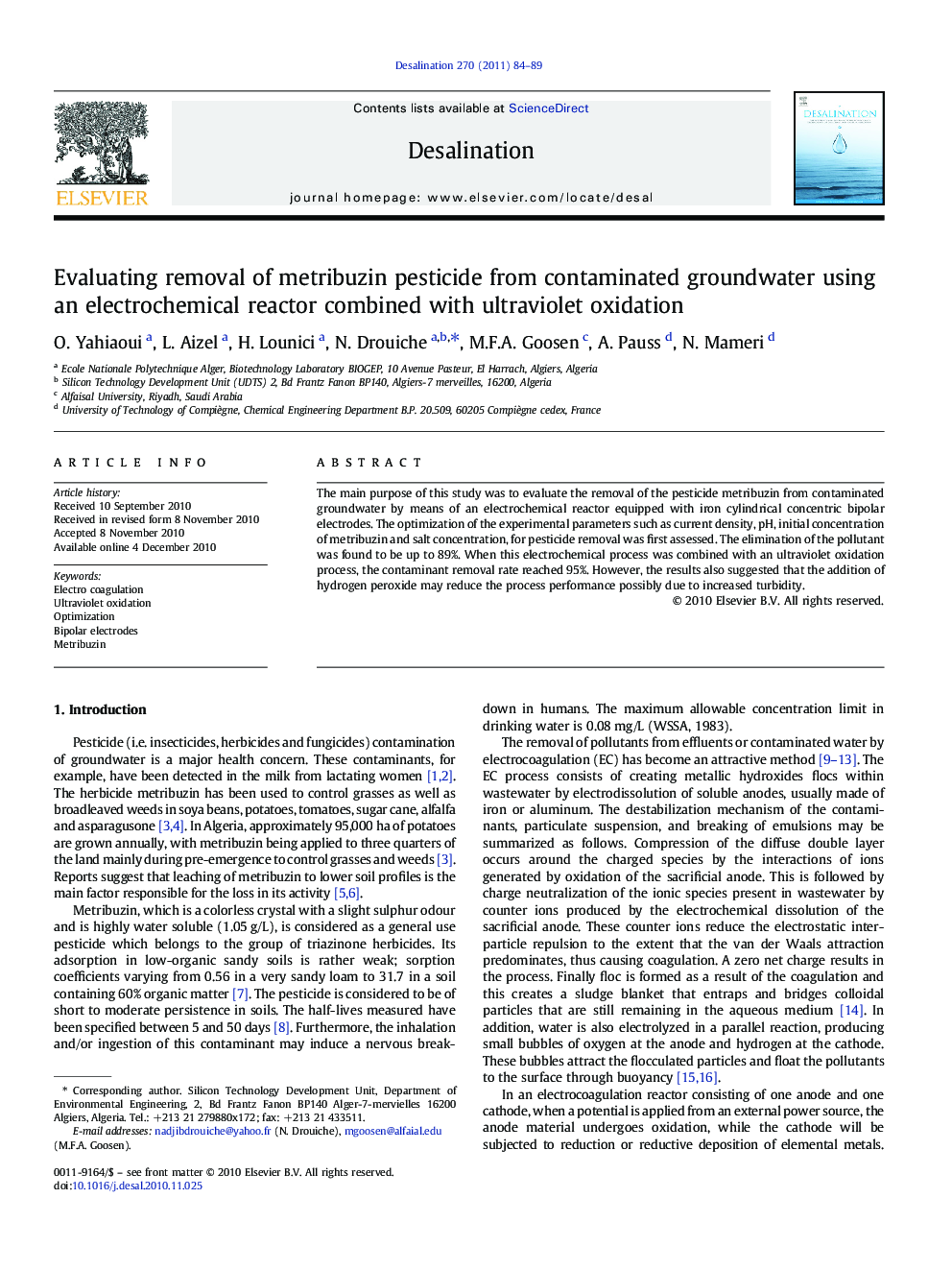| Article ID | Journal | Published Year | Pages | File Type |
|---|---|---|---|---|
| 625253 | Desalination | 2011 | 6 Pages |
The main purpose of this study was to evaluate the removal of the pesticide metribuzin from contaminated groundwater by means of an electrochemical reactor equipped with iron cylindrical concentric bipolar electrodes. The optimization of the experimental parameters such as current density, pH, initial concentration of metribuzin and salt concentration, for pesticide removal was first assessed. The elimination of the pollutant was found to be up to 89%. When this electrochemical process was combined with an ultraviolet oxidation process, the contaminant removal rate reached 95%. However, the results also suggested that the addition of hydrogen peroxide may reduce the process performance possibly due to increased turbidity.
Research Highlights► Evaluating removal of pesticide from contaminated groundwater using an electrocoagulation combined with ultraviolet oxidation was achieved. ► Investigation on the efficiency of the combination of electrocoagulation with ultraviolet oxidation to remove metribuzin from contaminated groundwater has been done. ► As results pollutant removal from wastewater by means of electrocoagulation was satisfactory. ► The proposed combination of the use of bipolar electrocoagulation combined with UV based advanced oxidation processes was very satisfactory too. ► The proposed process can be used as a pretreatment for reverse osmosis, nanofiltration or biological treatment.
